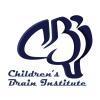Neurologist Treat Pediatric Migraines

Neurologists can provide a thorough assessment, make an accurate diagnosis of migraine, and rule out any other potential neurological condition that may cause similar symptoms. An early, accurate assessment and diagnosis can give patients more headache-free days. Neurologists are at the forefront of new migraine treatments and can provide patients with the latest information and treatment options.
Abdominal migraines are more common in children. Two out of three children will suffer migraine headaches as adolescents. Migraines that cause extreme abdomen pain, nausea, or vomiting are an abdominal migraine. When it comes to migraine treatment, over-the-counter drugs or prescribed medicines can be the first thing to try. But migraine treatment has a broad scope.
There are two broad categories of migraine medication. Preventive medications taken regularly to reduce the severity and/or the number of migraines. And pain-relieving medications designed to stop symptoms. Also known as an abortive or acute treatment, these drugs are taken during migraine attacks.
FAN
Our Fast Access Neurology (FAN) Service ensures a clinic visit with an
expert pediatric neurologist in our institution within 24 to 72 hours
after referral or initial contact with the Children's Brain Institute.
Migraine Treatments

Migraine
There are many medication options available to doctors. As with most medications, side effects and mixing medicines can be a reason to select or reject a given medication option. Migraine treatment results will vary by patient.
Here are a few of the more frequently used pain-relieving medications:
- Triptans are prescription drugs used to treat migraine because they block pain pathways in the brain.
- Dihydroergotamine is most effective when taken soon after the start of migraine symptoms. A note of caution, dihydroergotamine can worsen migraine-related vomiting and nausea. Children with high blood pressure, kidney or liver disease, or coronary artery disease should avoid dihydroergotamine. This drug is not approved for use in children.
- Reyvow is effective in some patients for the treatment of migraine with or without aura. The drug can have a sedative effect and may cause dizziness.
- Ubrelvy is approved for treating acute migraine with or without aura in adults. Ubrelvy is not approved for use by anyone younger than 18 years old.
- Oral CGRP antagonists were recently approved for treating acute migraine with or without aura in adults.
- Anti-nausea drugs. These can help if your migraine with aura is accompanied by nausea and vomiting. The drugs are usually taken with pain medications.
Complementary and Integrative Medicine
Here are a few of the more frequently used preventative medications.
- Anti-seizure drugs often help those with fewer migraines but can cause side effects such as weight changes, dizziness, nausea, and more.
- Antidepressants can prevent migraines.
- Blood pressure-lowering medications, including beta blockers, can help prevent migraines with aura.
- CGRP monoclonal antibodies are newer drugs to treat migraines. They’re given monthly or quarterly by injection.
Supplements or strategies used in addition to a person’s usual migraine treatment are complementary or integrative treatments. Examples are relaxation techniques and a consistent sleep and wake schedule daily. Eating meals at the same time every day and drinking plenty of water helps. Recording symptoms in a headache diary. Regular aerobic exercise.
Vitamin deficiencies that can cause migraine headaches are vitamins D, B6, B12, Magnesium, folate, and riboflavin. Research supports the use of vitamins to help with migraine. Supplements that help reduce migraine, B2, B6, B12, magnesium, vitamin D, coenzyme Q10, and melatonin. Older research has shown magnesium, riboflavin, feverfew, and butterbur are helpful in migraine treatment. New research suggests potential benefits with melatonin, vitamin D, higher dosages of vitamin B6 (80 mg)/folic acid 5 mg combinations, and the combination of magnesium 112.5 mg/CoQ10 100 mg/feverfew 100 mg. Omega 3s have limited evidence of efficacy in migraine. Several complementary and integrative treatment options are helpful for patients with migraines.

Accepted Health Insurance Types
Various health insurance types are accepted, including Medicare and most HMO and PPO insurance.
